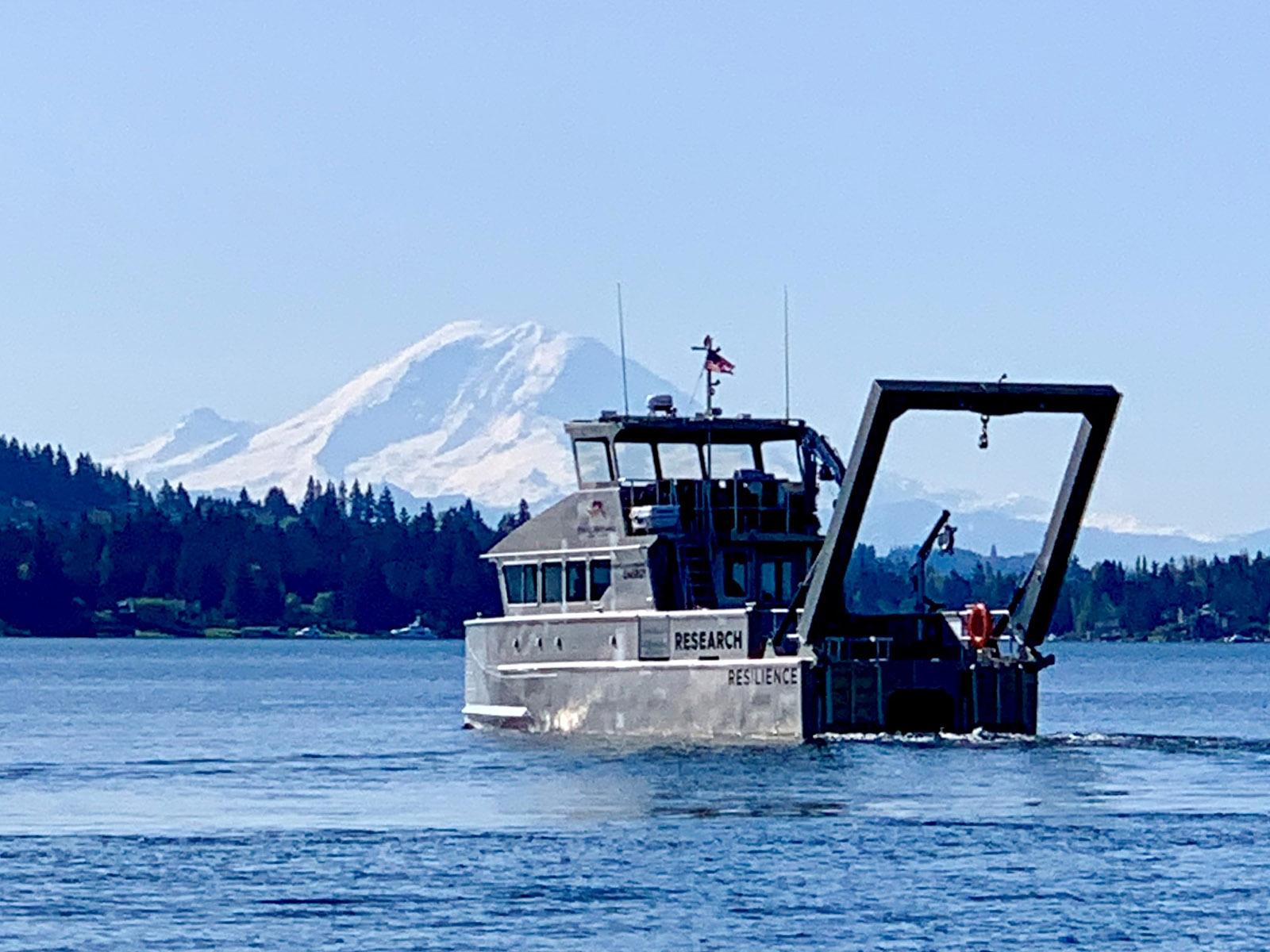Hybrid Electric Marine Research Vessel
Sequim, WA
United States

R/V Resilience with Mt. Rainier in the background.
(Photo courtesy of Chris Watson | Snow & Company, Inc.)
In 2024, a new plug-in hybrid research vessel, the RV Resilience, arrived at PNNL-Sequim, the only marine research facility in the Department of Energy (DOE) complex.
RV Resilience, equipped with both standard diesel engines and electric motors, is the first hybrid vessel in the DOE fleet. When operating in battery electric mode, the vessel is nearly silent and without emissions. It is less intrusive for studying fish and other wildlife and also reduces air pollution and carbon dioxide emissions.
With funding from DOE’s Water Power Technologies Office, the RV Resilience represents the next generation of blue economy technology and enables future research and testing to support renewable power from the ocean. As a hybrid vessel, the investment advances long-term opportunities for energy innovation and decarbonization of marine transportation.
RV Resilience was built by Snow & Company in Seattle, Washington and is able to operate quietly on electric power at lower speeds, and cruise at 20 knots using diesel power. It has laboratory space with multiple science stations, a large deck, an A-frame, and knuckle crane to help move research equipment. The vessel is powered by an advanced parallel hybrid-electric propulsion system, consisting of two main engines, capable of producing 374 kW each, supplemented by two EM-PMI375-T200-2600 motor-generators. Power is stored using a state-of-the-art battery system, allowing the vessel to operate quietly in a zero-emission electric state while engaged in a mixture of survey operational modes.
General specifications
| Length: | 50+ ft |
| Beam: | 16 ft |
| Draft: | 4 ft |
| Motors: |
|
| Battery system: | Spear power systems Trident lithium-ion battery (113 kWh capacity) |
| Charging modes: |
|
| Speed, diesel engines: | Cruise at 20 knots |
| Speed, electric engines: | 7 knots |
| Endurance on electric power: | 4+ hours of research operations |
| Global positioning system (GPS): | Survey grade GPS systems |
| Scientific spaces: |
|
Support Equipment
- A-frame, 5000 lb. capacity to deploy devices
- Knuckle boom, 1000 lb. crane, vertical device deployment
- Dedicated transducer mount
- Flexible electrical feeds and supplies
- SCUBA compressor

RV Resilience during sea trials.
(Photo courtesy of Chris Watson | Snow & Company, Inc.)

RV Resilience during sea trials.
(Photo courtesy of Chris Watson | Snow & Company, Inc.)

RV Resilience during sea trials.
(Photo courtesy of Chris Watson | Snow & Company, Inc.)